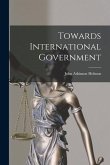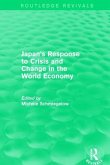Observations on the Effects of the Corn Laws is an influential work that advocates free trade and argues against protectionism. The author, Thomas Robert Malthus, presents evidence to demonstrate that restrictions on the import of corn (grain) result in higher grain prices and ultimately lead to higher food prices. This book investigates the shifting fortunes of agriculture and provides valuable insights into trade and economic policy. This work has been selected by scholars as being culturally important, and is part of the knowledge base of civilization as we know it. This work is in the "public domain in the United States of America, and possibly other nations. Within the United States, you may freely copy and distribute this work, as no entity (individual or corporate) has a copyright on the body of the work. Scholars believe, and we concur, that this work is important enough to be preserved, reproduced, and made generally available to the public. We appreciate your support of the preservation process, and thank you for being an important part of keeping this knowledge alive and relevant.
Hinweis: Dieser Artikel kann nur an eine deutsche Lieferadresse ausgeliefert werden.
Hinweis: Dieser Artikel kann nur an eine deutsche Lieferadresse ausgeliefert werden.








